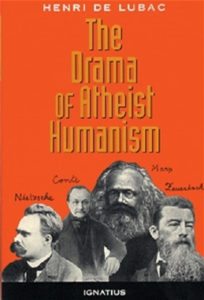Podcast: Play in new window | Download (Duration: 32:36 — 22.4MB) | Embed
Subscribe: Apple Podcasts | Spotify | Amazon Music | Android | Pandora | iHeartRadio | JioSaavn | Podchaser | Gaana | Podcast Index | Email | TuneIn | Deezer | Anghami | RSS | More
A Broad Overview of First 18 Chapters – The Way of Perfection by St. Teresa of Avila – Beginning to Pray with Dr. Anthony Lilles
 Dr. Lilles reviews teachings on poverty, humility, and, in particular, friendship, which are all found in a broad overview of the first 18 chapters of “The Way of Perfection.” We also discuss the value of the virtues and the importance of the “good example” in St. Teresa’s writings. All of this will be essential to her foundational teachings on contemplative prayer.
Dr. Lilles reviews teachings on poverty, humility, and, in particular, friendship, which are all found in a broad overview of the first 18 chapters of “The Way of Perfection.” We also discuss the value of the virtues and the importance of the “good example” in St. Teresa’s writings. All of this will be essential to her foundational teachings on contemplative prayer.

For the audio recordings of St. Teresa’s “The Way of Perfection” you can visit the Discerning Hearts Spiritual Classics audio page
For other episodes in the series visit
The Discerning Hearts “The Way of Perfection with Dr. Anthony Lilles”
Anthony Lilles, S.T.D. is an associate professor and the academic dean of Saint John’s Seminary in Camarillo as well as the academic advisor for Juan Diego House of Priestly Formation for the Archdiocese of Los Angeles. For over twenty years he served the Church in Northern Colorado where he joined and eventually served as dean of the founding faculty of Saint John Vianney Theological Seminary in Denver. Through the years, clergy, seminarians, religious and lay faithful have benefited from his lectures and retreat conferences on the Carmelite Doctors of the Church and the writings of St. Elisabeth of the Trinity.





 Dr. Lilles discusses Chapter 3 and 4 of St. Teresa of Avila’s “Way of Perfection”:
Dr. Lilles discusses Chapter 3 and 4 of St. Teresa of Avila’s “Way of Perfection”: You can find the book
You can find the book 


